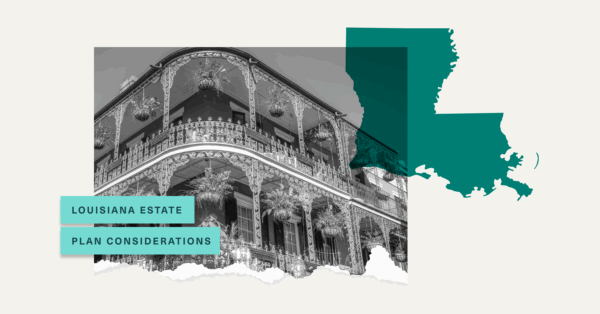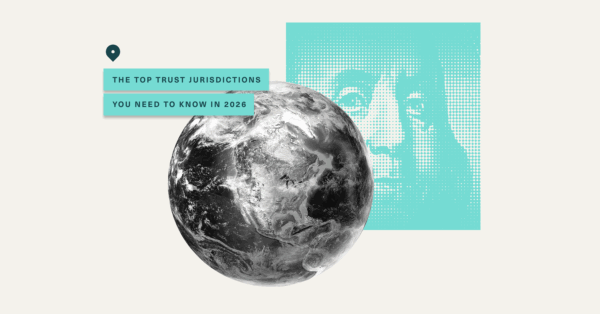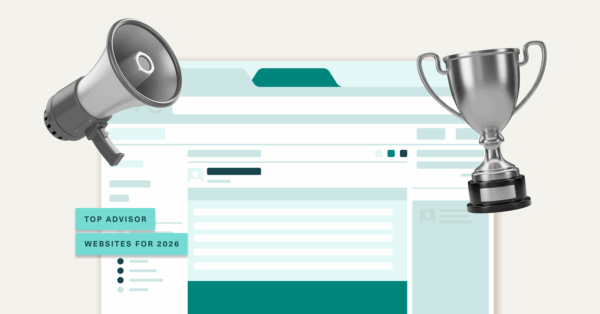Financial advisors know that the most effective client relationships are built on trust, foresight, and the ability to guide families through the full arc of their financial lives. But while investment management and retirement planning are often top of mind, estate planning is too often left siloed, delayed, or outsourced. The reality is simple: holistic financial planning and estate planning are inseparable. The bookend to any successful financial plan is an estate plan. When advisors weave them together, they unlock deeper value for clients, preserve wealth across generations, and strengthen long-term client relationships.
What Holistic Financial Planning Really Means
Holistic financial planning looks beyond accounts and performance metrics to encompass every part of a client’s financial life. It integrates:
- Cash flow and budgeting to sustain daily stability.
- Tax strategies that optimize lifetime outcomes.
- Retirement planning to ensure longevity of resources.
- Insurance and risk management to guard against disruptions.
- Investment management to build a portfolio that aligns with the client’s goals.
- Education and legacy goals to prepare for the future.
- Estate planning to secure the client’s wishes for wealth transfer.
At its core, holistic planning means aligning money with purpose. It asks: What matters most to this client, and how should their wealth serve those priorities?
The Role of Estate Planning
Estate planning is the capstone of comprehensive wealth management. It ensures that assets are managed and distributed in accordance with a client’s wishes, both during life and after death. Common tools include wills, trusts, powers of attorney, healthcare directives, and beneficiary designations. But beyond documents, estate planning provides clarity. It minimizes conflict, protects against unnecessary taxation, and communicates a client’s legacy intentions clearly to heirs and charities.
Even the most thoughtful financial plan can fall short if a client’s legacy wishes are trapped in probate. Without the right estate planning in place, wealth can become tangled in delays, legal fees, and family disputes. What was carefully built over decades risks being lost or diminished in transition.
For advisors, estate planning is not a separate service but a critical extension of the financial plan. Without it, all the work put into growing and protecting wealth risks unraveling at the moment it matters most.
Why Advisors Must Bridge the Two
Holistic financial planning and estate planning share the same objective: maximizing financial well-being while preserving a client’s values. When these processes operate in silos, critical details fall through the cracks and clients ultimately miss out.
Advisors are uniquely positioned to bridge the gap. Unlike attorneys, CPAs, or insurance specialists who each see only one piece of the puzzle, advisors maintain the full picture with investments, taxes, retirement, cash flow, and more. Often, they have walked alongside clients for years, if not decades, building deep trust and understanding.
This vantage point makes the advisor the natural quarterback. They can anticipate how estate planning choices will ripple across a client’s broader financial life, coordinate among attorneys, CPAs, and insurance professionals, and ensure consistency across disciplines. Most importantly, they keep the client’s long-term goals and legacy intentions at the center of every decision, so that wealth not only grows but transfers in alignment with the client’s wishes.
Advisors who integrate these disciplines create tangible advantages for their clients. Here are three standout examples:
1. Risk Mitigation and Wealth Preservation: Without thoughtful estate integration, risks emerge. A client underinsured for long-term care may have to liquidate assets intended for heirs. A lack of clear documentation may trigger probate disputes. A trust structure left unreviewed after a divorce can unintentionally exclude or include beneficiaries. Holistic planning helps advisors proactively identify these vulnerabilities and protect client wealth.
2. Tax Efficiency: Estate and income taxes can significantly erode generational wealth transfers. Coordinated planning makes tax optimization possible through strategies like annual gifting, irrevocable trusts, and charitable contributions. Advisors who bring estate planning into their process not only preserve wealth but also demonstrate measurable value to clients.
3. Seamless Adaptation to Life Events: Life rarely goes according to script. Marriage, divorce, the birth of children, the sale of a business, or even evolving philanthropic priorities can all reshape both financial and estate plans. Holistic advisors ensure estate strategies are revisited alongside financial updates, keeping the entire plan current and aligned.
Separation Comes at a Cost
When financial planning and estate planning are treated as silos, clients are exposed to inefficiencies, missed opportunities, and costly mistakes. Conflicting advice from different professionals can leave gaps. Outdated beneficiary designations may unintentionally override a carefully drafted will. Valuable tax advantages can slip through the cracks.
Most importantly, a client’s intentions may never be fully realized. Without coordination, their legacy risks being dictated by default legal frameworks instead of by thoughtful, deliberate design.
This challenge is amplified by the fact that estate planning participation remains alarmingly low. A 2024 survey found that only about 24% of American adults have a will or living trust, with even lower rates among younger clients and underrepresented demographics (Caring, 2025). Meanwhile, Baby Boomers are projected to transfer $124 trillion in wealth by 2048 (Cerulli, 2024). This unprecedented generational wealth transfer is already underway, and advisors who fail to integrate estate planning into their offering risk being left behind. Those who embrace it, however, position themselves as indispensable partners to clients and their families at the moments that matter most.
The Advisor’s Opportunity
For financial advisors, estate planning is not just about compliance or risk management; it’s a growth opportunity. By making estate planning part of your holistic process, you can:
- Differentiate your practice. Few advisors provide this level of comprehensive service.
- Deepen client trust. Guiding families through sensitive legacy conversations builds enduring relationships.
- Retain assets across generations. By engaging heirs early through estate discussions, advisors are more likely to maintain client relationships when wealth transfers occur.
- Simplify the process. Modern technology removes the barriers that once made estate planning slow, intimidating, or cost-prohibitive.
Financial Advisor Jason Oestreicher from PATH Financial Partners said, “You can’t provide any other type of value that is as impactful as estate planning. Clients aren’t going to leave you when you offer it. This isn’t just another service; it’s how you set yourself apart, retain clients, and secure the next generation.”
Estate Planning as the Capstone of Holistic Advice
Holistic financial planning without estate planning is incomplete. Financial advisors who integrate the two create durable value: protecting wealth, honoring client intentions, and ensuring financial legacies reflect what matters most.
The opportunity is clear. As trillions of dollars prepare to change hands, advisors have a responsibility, and a competitive advantage, to deliver comprehensive, unified planning.
The good news? At Wealth.com, we make estate planning not just accessible but actionable. Our platform equips advisors with the tools to seamlessly integrate estate planning into their practice, enhancing client outcomes and strengthening advisor-client relationships.
Historically, estate planning required sending clients to attorneys, often creating disjointed experiences. Today, our platform bridges the gap between holistic financial planning and estate planning, empowering advisors to provide end-to-end service without friction.
Ready to see how Wealth.com can help you bring estate planning in-house? Get started today.



